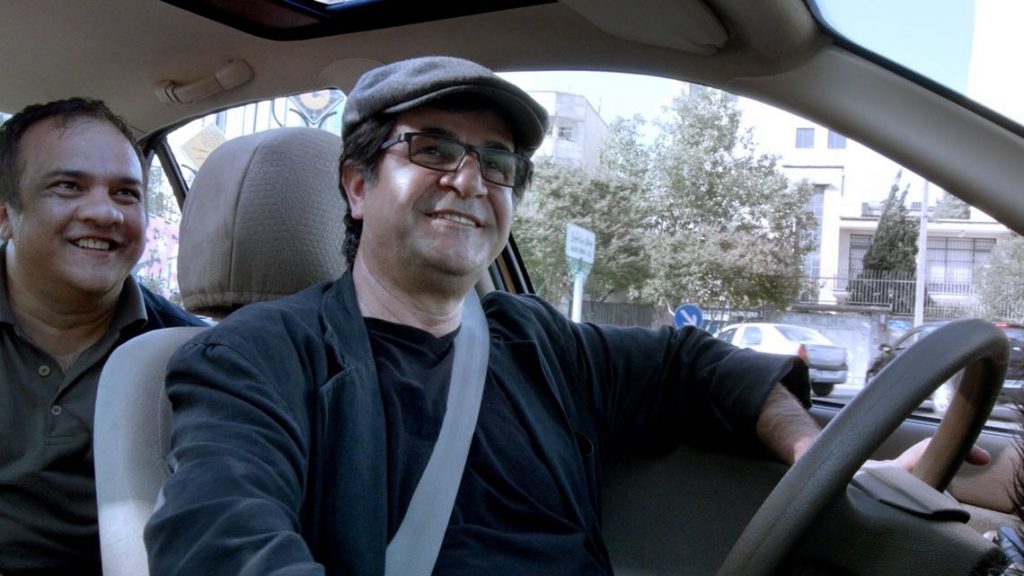Help keep The Curb independent by joining our Patreon.
Filmed from the perspective of security cameras in a taxi, Tehran Taxi is the latest non-film from director Jafar Panahi. Just like This Is Not a Film, Panahi uses these security cameras to document what occurs within the taxi. The feel is instead of a pseudo-documentary in the strain of 20,000 Days on Earth where the subject on display is more a created reality rather than reality itself.
Tehran Taxi moves along at a brisk pace coming in at just over eighty minutes long. It’s with this great efficiency that Panahi manages to tell a tale of the importance of film within a culture, whilst also portraying what life within Iran is like. It’s through films like Tehran Taxi that we see that life within Iran is not all doom and gloom, that even though life can be hard in Iran it’s not so oppressive that smiles can’t be had.
Whether it’s with some darkly comic moments like when Panahi is forced to take a woman and her husband who suffered a motorbike injury to a hospital, or with two elderly ladies who are returning two gold fish to a sacred pond, Tehran Taxi is always entertaining and informative. As an insight into a different culture Tehran Taxi gives a broad look at everything from the school system through to capital punishment, all from the dashboard of the taxi. The variety of different characters on display helps ensure that the film never feels claustrophobic or uninteresting, each having a story to tell.
Tehran Taxi is one of the few films that I can say would make a slight statement in favour of film piracy for some countries. Panahi’s journey to a young aspiring filmmakers house has his passenger selling bootleg DVD’s to the youth, offering him all manner of films and TV series from Scorsese to The Walking Dead. Without film piracy, these films would never reach a country like Iran – a country who banned Panahi from making films because they didn’t meet up with government directions of what can be displayed in films.
It’s through this censorship that the importance of stories within culture is reinforced. We see the aforementioned elderly women tell a tale about the fish they’ve been caring for and how it ties in with their life. We see how stories affect people and give them hope, or even at times, give them fuel to burn a political fire within them. When one of Panahi’s friends tells him a story about when he was beaten up, Panahi offers assistance but his friend doesn’t want him to do anything, he just wants him to hear his story.
And that’s what is the core element of Tehran Taxi and what makes it such an important film – it’s a film about the unfiltered stories of a country who (as Westeners) we don’t often get to hear. Its strength of relaying these stories through humour and humanity is why this film is a must see.



